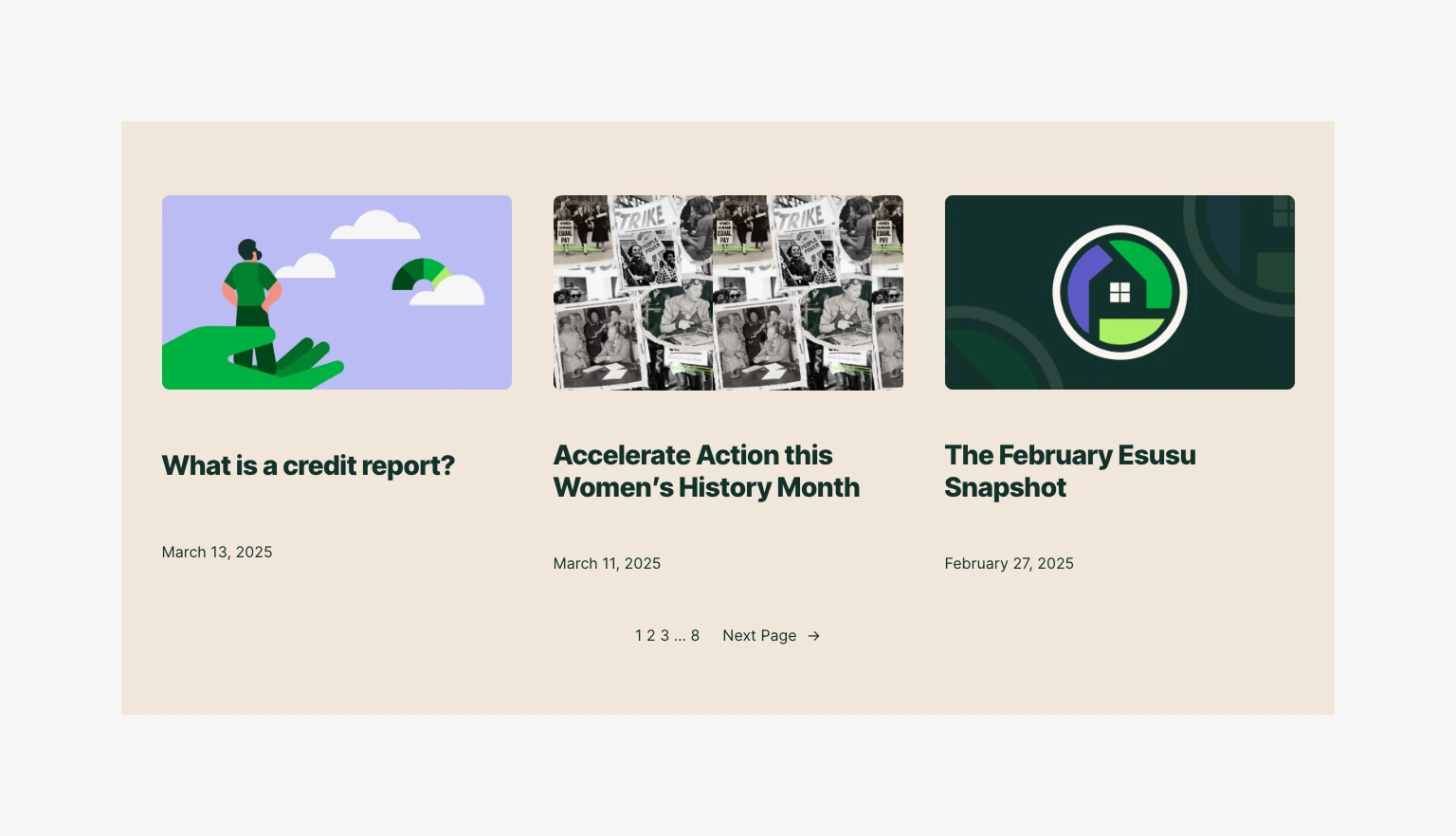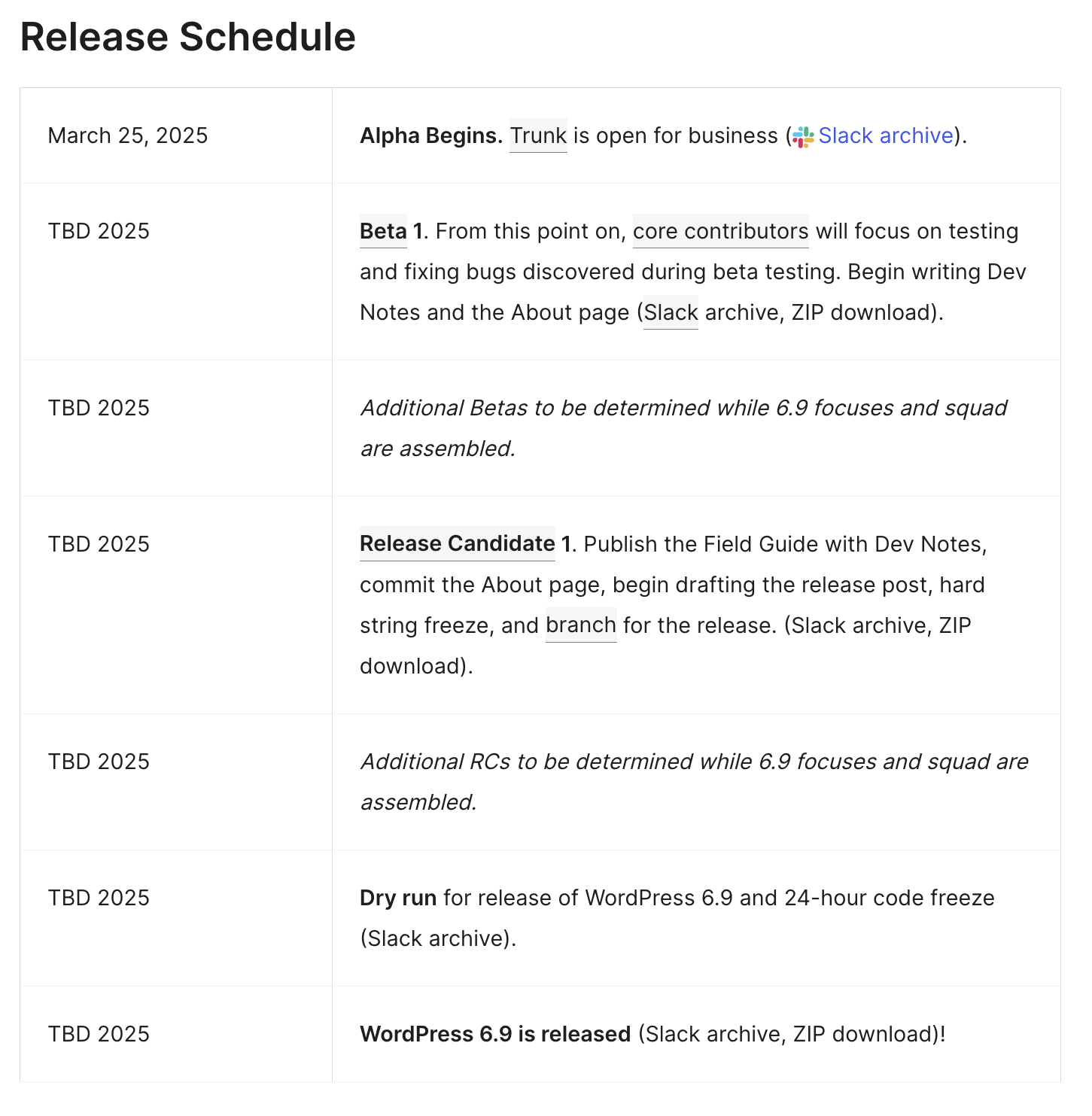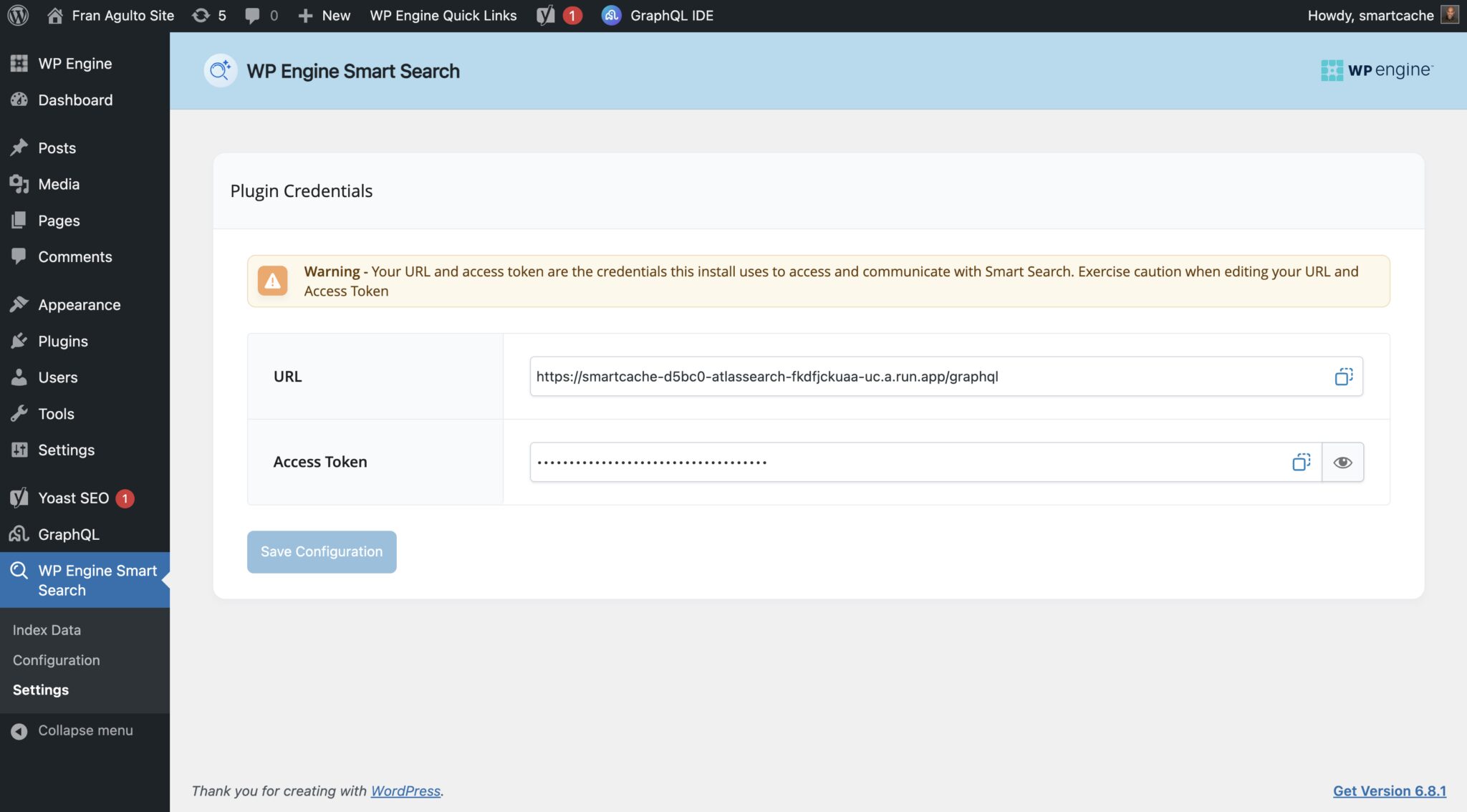
In this issue of Delicious Brain Bytes, we look into recent and upcoming WordCamps, discuss the upcoming release of WordPress 6.9, and much more!
WordCamp Wrap-Up: Europe Recap, US on the Horizon
WordCamp Europe’s 2025 Contributor Day was particularly fruitful, welcoming five new Core contributors to the project and fixing four key tickets. The event took place in Basel, Switzerland, from June 5-7. Sessions covered a diverse range of topics, from content strategy to AI, with all talks now available on WordPress.tv. You can find a full recap of WordCamp Europe 2025 here.
Two more WordCamps are set for July: WordCamp Masaka on July 18-19 in Masaka, Uganda, and WordCamp Nicaragua on July 26 in Managua, Nicaragua.
WordCamp US 2025 takes place August 26-29 in Portland, Oregon, at the Oregon Convention Center. The event kicks off with Contributor Day on August 26, followed by three days of main conference sessions.
Attendees can expect a comprehensive program covering the latest trends, skills, and strategies in web development, blogging, and site building, alongside opportunities for in-person networking, and a Showcase Day for innovative WordPress projects. WordCamp US is expected to draw between 1200 and 2000 attendees, offering a prime chance to connect with influential figures and contribute to the future of WordPress. Learn more about WordCamp US 2025 here.
WordPress 6.9 Now Scheduled for 2025
WordPress 6.9 is now scheduled for 2025, although most of the dates still read “TBD.” This is a recent change, with all dates previously showing as 2026. A new cadence for WordPress releases was announced in April, reducing the number of major releases from three per year to one. This year will see two major releases, but no official update to this policy has been made at this time.
The next minor release for WordPress is 6.8.2, currently available as a Release Candidate. The release is primarily focused on bugfixes introduced in 6.8. The WordPress 6.8.2. final release is scheduled for July 15, 2025.
Installing Adblock on Your Face
Tired of visual clutter and relentless advertising in the real world? Stijn Spanhove, a Belgian software engineer, has unveiled an augmented reality app for Snap’s fifth-generation AR Spectacles that acts as a real-world adblocker. Using Google’s Gemini AI, the app identifies and obscures advertisements, billboards, and product branding, replacing them with a simple red square showing the name of the advertiser. It also seems to work on any object that’s sufficiently ad-like, such as cereal boxes and soda cans.
️ I've been building an XR app for a real-world ad blocker using Snap @Spectacles. It uses Gemini to detect and block ads in the environment.
— Stijn Spanhove (@stspanho) June 19, 2025
It’s still early and experimental, but it’s exciting to imagine a future where you control the physical content you see. pic.twitter.com/ySkFfF6rxS
FAIR Package Manager: A Decentralized Approach to WordPress Software Distribution
A new open-source initiative, the FAIR Package Manager, has emerged with the goal of rethinking how software is distributed and managed within the WordPress ecosystem. FAIR, which stands for Federated And Independent Repositories, aims to offer a decentralized alternative to the WordPress.org plugin and theme ecosystem.
The FAIR Package Manager operates as a WordPress plugin designed to replace existing centralized services with a federated, open-source infrastructure. Its core pillars include API replacement, handling services like update checks and event feeds with local or FAIR-governed alternatives, and decentralized package management, introducing a new distribution model for themes and plugins. The project supports opt-in packages using the FAIR protocol, allowing hosts to configure their own repository mirrors.
The FAIR project’s Technical Steering Committee is co-chaired by Carrie Dils, Mika Epstein, and Ryan McCue. The GitHub repository for the FAIR Package Manager is now live and open for contributions.
Unlocking Interactivity: 15 Examples for the WordPress Interactivity API
For WordPress developers looking to build more dynamic and engaging user experiences without relying on complex external JavaScript, Diane Collett’s recent article for WP.Gallery offers a valuable resource. In 15 WordPress Interactivity API examples, Collett showcases the power of the native WordPress Interactivity API, introduced in WordPress 6.5, through a range of practical applications.
Collett highlights how the Interactivity API enables smooth, modern features directly within WordPress blocks. For instance, the native image lightbox allows images to expand into a full-screen overlay on click, creating a professional gallery experience without needing third-party plugins. Similarly, the instant query loop pagination feature supercharges the Query Loop block, letting users browse posts without full page reloads, significantly speeding up navigation. Beyond core blocks, the API also empowers custom interactive elements like carousels and sliders, handling the complex logic required for smooth animations and user navigation between items.
These examples offer just a glimpse into what’s possible with the WordPress Interactivity API. For more inspiration, be sure to check out the full article.

The Hidden Costs of “Easy” Website Builders
Clients who suggest platforms like Wix or Squarespace for a quick and easy website launch may not have considered the long-term implications. Jono Alderson’s recent article, [The long-term cost of short-term platforms](https://www.jonoalderson.com/wordpress/the-long-term-cost-of-short-term-platforms/, offers a compelling argument for why immediate convenience can lead to significant headaches down the road.
Alderson dissects how these “short-term” platforms, while excellent for rapid deployment, are optimized for quick conversion and lock-in, not for evolving business needs or strategic growth. He argues that by abstracting complexity, they often limit flexibility in crucial areas like SEO, data models, and integrations. This can leave businesses hitting a wall when their needs expand beyond a simple brochure site. Alderson concludes that while WordPress might present a steeper learning curve, its open and flexible nature ultimately provides the control and adaptability necessary for businesses to truly grow and differentiate online.
This article is a vital read for any WordPress professional looking to educate clients on the strategic advantages of a more robust, extensible platform. Find Alderson’s full insights here.
The Wild World of Software Bugs: Lessons from History’s Most Bizarre Glitches
Ever wondered about the most absurd software bugs in history? At PyCon US 2025, Mia Bajić, a software engineer and Vice Chair of the EuroPython Society, shared some truly bizarre incidents, reminding us that even the most advanced systems can have hilariously human-sized flaws.
Among the greatest hits was a 2009 Google typo where a single forward slash caused every website (including Google’s own) to be flagged as dangerous. Then there was the NASA Mars Climate Orbiter lost in 1999, which crashed because one team used imperial measurements and another used metric—a $125 million unit conversion error. Bajić also recounted the tale of Steve Null, a Sun Microsystems employee who kept disappearing from databases because older systems couldn’t handle “Null” as a name.
These anecdotes are amusing, but they also highlight critical lessons: test thoroughly, ensure clear communication across systems, and always anticipate the unexpected. For more bizarre bug stories and the valuable lessons they offer, check out Bajić’s talk here.

Building a Headless WordPress Chatbot with WP Engine’s AI Toolkit and Google Gemini
Harnessing the power of AI to create intelligent and responsive applications is a growing demand in modern web development. For WordPress professionals working with headless architectures, integrating advanced AI capabilities can unlock new possibilities.
In this article, Francis Agulto shows us how to build a full-stack chatbot that leverages WP Engine’s AI Toolkit, Retrieval Augmented Generation (RAG), and Google Gemini within a Next.js framework, delivering accurate and contextually relevant responses from your WordPress content.
Essential Soft Skills for WordPress Developers
You’re not going to get far in WordPress development without solid technical skills. They’re foundational, allowing you to build, customize, and optimize digital experiences. However, they’re only going to take you so far. Continued success demands a sophisticated suite of soft skills, the interpersonal, communication, and organizational abilities that bridge the gap between technical execution and project triumph.
In this article, we look into these critical, non-coding competencies, exploring why they are just as vital as your development expertise for navigating challenges, fostering client satisfaction, and ultimately accelerating your career growth.

What’s the most interesting news you’ve come across recently? Pop by Twitter and let us know.

